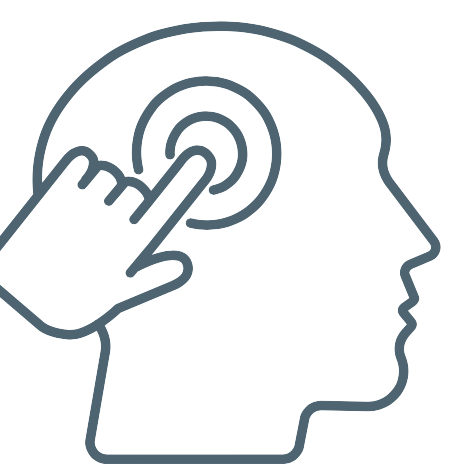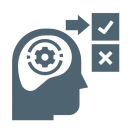

Rational Emotive Behavior Therapy (REBT)
Concepts of REBT:
According to REBT, not directly events but one’s beliefs about the events lead to emotional and behavioral reactivity. REBT suggests rational and irrational beliefs and that in response to failure, mistreatment, and misfortune, people can respond with either healthy or unhealthy emotional and behavioral responses. Research indicates that irrational beliefs lead to unhealthy negative emotions, distress, various mental illnesses, and non-adjusting behaviors. Therefore, REBT has charted a process for reducing irrational beliefs and promoting rational beliefs.


Different people react to the same situation in different ways. Some get motivated and get charged after facing a failure, and some get depressed or even end their lives. Suppose the problem is the same, and people respond differently. Is it rational to say that it is up to us how we perceive and react to a situation rather than the situation itself?
A major cause of our stress and unhappiness is our irrational thinking as suggested by Rational Emotive Behavior Therapy (REBT):
- Demandingness
- Low frustration index
- Catastrophizing
- All or nothing thinking
The ABC model in REBT:
The construct of ABC model suggests that external events (A) do not cause emotions (C), but beliefs (B) do” (Sarracino et al., 2017), meaning that our emotions and feelings are not caused by events or situations but by our beliefs, biases, and perspectives.


The ABC model is used to make the client aware of his/her irrational belief, dispute the belief, and replace the old irrational belief with a new rational one. Thus REBT suggests that we have the power to change our beliefs through rational thinking. Later, the ABC model was updated to ABCDE model, where D is the Disputation process, and E stands for the Effect (New effect of rational belief) (Jorn, 2016).
A = Activating event (The client makes a mistake)
B = Belief (The client thinks that he is a failure)
C = Consequence (The client gives up on himself and completely loses confidence).
The counselor disputes the B = Belief. With the counselor’s assistance, the client realizes that making a mistake does not make him a failure. He does not need to accept the thought as a fact, and he should decide that not all of his thoughts are true and rationalize the situation.


Activating event is a trigger event. It could be a challenging and disturbing situation in life, for example failing in an exam, or getting dumped by girlfriend/boyfriend, losing a job, making a mistake, not getting admission to desired college, not getting selected for a job, project, etc.


Belief is an individual's thoughts about the event. For example, failing an exam means I am a loser, making a mistake means I am incapable, not getting admission to the desired college means I am not good enough, not getting selected for a job means I will always remain mediocre, and so forth.


The combination of the activating event/ trigger and the core beliefs will produce a consequence, such as excessive frustration, unhappiness, depression, social anxiety, losing of confidence, giving up, not trying because of fear, withdrawal from society, and low self-esteem.
His new thought process:
A = Activating event (The client makes a mistake)
B = Belief (The client thinks that he is a failure)
C = Consequence (The client gives up on himself and completely loses confidence. He now remembers that he can challenge the cognitive distortion)
D = Disputation (He questions the thought. He tells himself that everyone makes mistakes and that one mistake does not mean he is a failure or cannot improve) Disputation is a process in REBT through which an individual, with the help of their therapist, questions their irrational thoughts. Together they take a step back to analyze their irrational and distorted beliefs objectively. These negative beliefs are then carefully replaced by positive beliefs. This change in perception requires time, patience, and hard work.
E = Effect (The client accepts that everyone make mistakes and replaces negative, irrational thoughts with positive, rational thoughts. He decides to learn from his mistake, regains his confidence, and shows a willingness to take up a new task)
Reclaim your emotional stability by talking to an REBT certified expert now.
